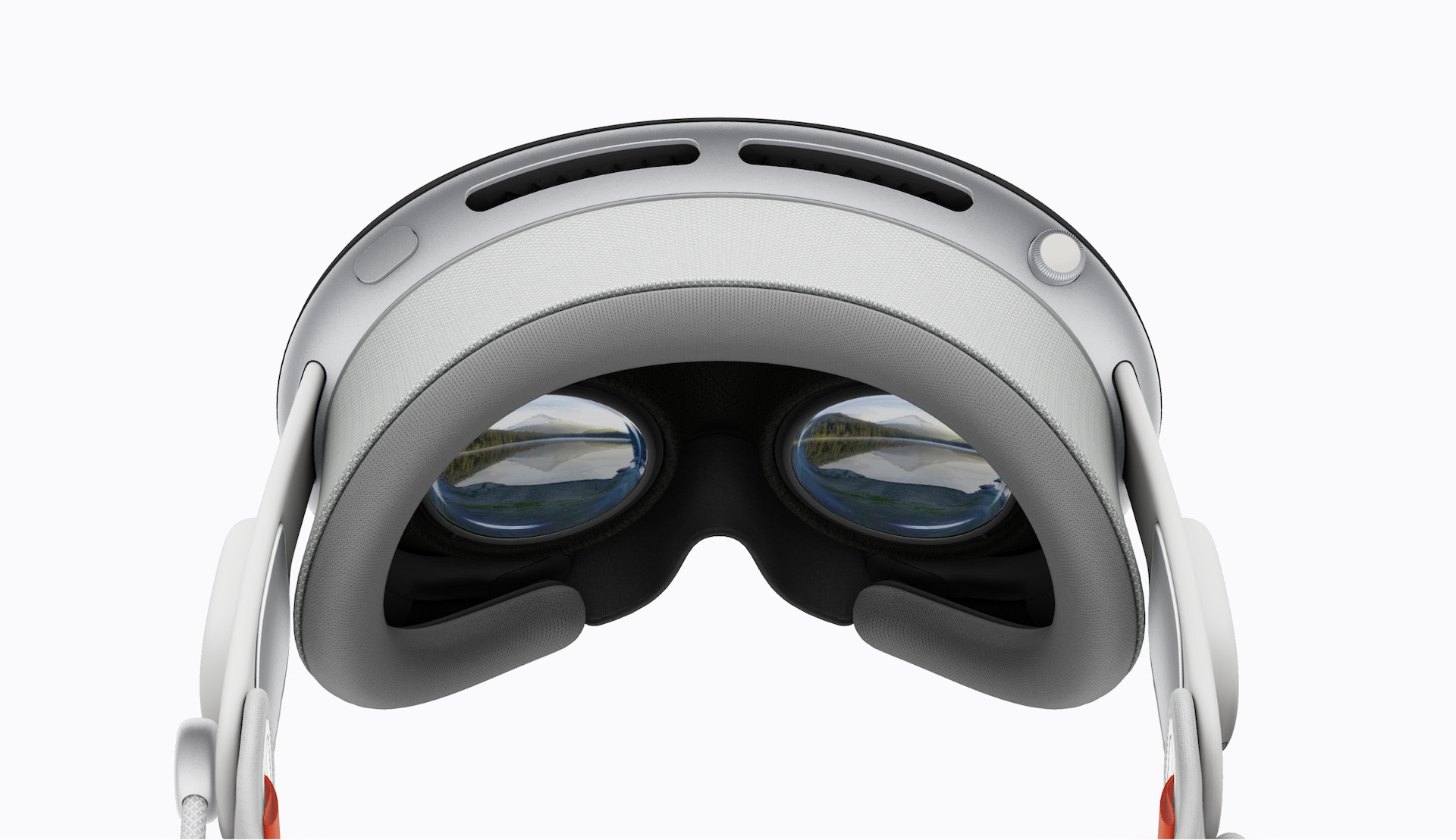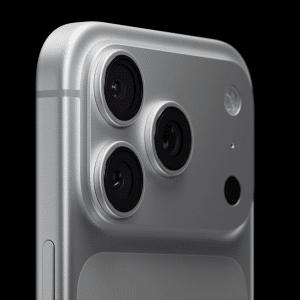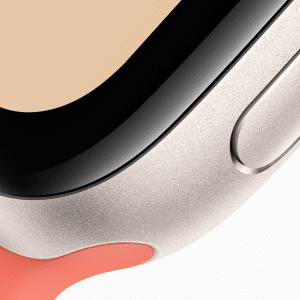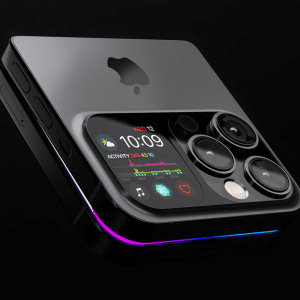The innovative Apple Vision Pro operates on two primary chips. The first, the M2, functions as the main processor, managing content processing, visionOS operations, computer vision algorithm execution, and graphical content delivery.
The R1 chip, on the other hand, undertakes the processing of all data incoming from the headset’s 12 cameras, five sensors, and six microphones. It can stream images to the device’s displays within 12 milliseconds – eight times faster than the blink of an eye. This remarkable speed endows the wearer with an almost completely lag-free view of the world.
To meet the high-speed demands of the R1, the Vision Pro will reportedly utilize a 1-gigabit low-latency DRAM chip supplied by SK hynix. This chip features a heightened count of input and output pins to keep delays at a minimum.
The DRAM chip is believed to employ a distinctive packaging method named Fan-Out Wafer Level Packaging. This approach allows the chip to be fused with the R1 chipset as a single integrated unit, effectively doubling processing speed.
Apple’s Vision Pro, priced at $3,500, is slated to go on sale in early 2024. Chinese contract manufacturer Luxshare will be responsible for the initial assembly of the device.

However, due to challenges linked to the supply of the two micro-OLED displays for the user’s eyes and the outward-facing curved lenticular lens, Apple may restrict production to less than 400,000 units in 2024, as per certain reports.













